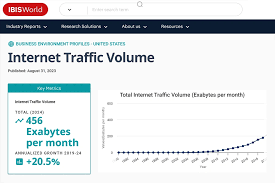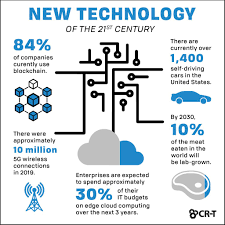The Impact of New Technology on Society
Technology has always played a pivotal role in shaping society, but the rapid advancements in recent years have brought about unprecedented changes. From artificial intelligence to blockchain, new technologies are transforming the way we live, work, and interact.
Enhanced Communication
One of the most significant impacts of new technology is the enhancement of communication. With the rise of social media platforms and instant messaging apps, people can now connect with others across the globe in real-time. This has revolutionised how we share information, collaborate on projects, and maintain relationships.
Increased Efficiency
New technologies have also led to increased efficiency in various sectors. Automation and machine learning algorithms have streamlined processes in industries such as manufacturing, healthcare, and finance. Tasks that once required manual intervention can now be performed faster and more accurately by machines.
Economic Disruption
The introduction of new technologies has disrupted traditional economic models. Industries that fail to adapt to technological changes risk becoming obsolete. On the other hand, innovative startups and businesses that embrace new tech have the potential to thrive and revolutionise entire markets.
Social Implications
While new technology brings numerous benefits, it also raises important social implications. Concerns around data privacy, cybersecurity, and job displacement have become more prominent as technology continues to advance. It is crucial for society to address these challenges proactively.
Looking Ahead
As new technologies continue to evolve at a rapid pace, it is essential for individuals and organisations to stay informed and adaptable. Embracing innovation while considering its broader impact on society will be key to navigating the ever-changing landscape of technology.
Six Benefits of Emerging Technologies: Transforming Communication, Efficiency, and Opportunities Worldwide
- Enhanced communication across the globe in real-time
- Increased efficiency through automation and machine learning
- Revolutionising industries and creating new market opportunities
- Improving access to information and education for people worldwide
- Fostering innovation and driving economic growth
- Empowering individuals with new tools and resources for personal development
Exploring the Downsides of Emerging Technologies: Job Displacement, Privacy Concerns, and More
- 1. Job Displacement
- 2. Privacy Concerns
- 3. Cybersecurity Risks
- 4. Digital Divide
- 5. Overreliance on Technology
- 6. Environmental Impact
Enhanced communication across the globe in real-time
The advent of new technology has significantly enhanced communication capabilities across the globe, enabling individuals to connect in real-time regardless of geographical boundaries. Platforms such as social media and instant messaging have revolutionised how people share information, collaborate on projects, and maintain relationships, fostering a more interconnected and globalised society. This pro of new technology not only facilitates swift and efficient communication but also promotes cultural exchange and collaboration on a scale never seen before.
Increased efficiency through automation and machine learning
One notable advantage of new technology is the increased efficiency it brings through automation and machine learning. By implementing automated processes and leveraging sophisticated algorithms, organisations can streamline operations, reduce human error, and boost productivity. Tasks that once required significant time and resources can now be completed swiftly and accurately, allowing businesses to focus on strategic initiatives and innovation. This enhanced efficiency not only improves overall performance but also enhances competitiveness in an increasingly fast-paced digital landscape.
Revolutionising industries and creating new market opportunities
The advent of new technologies is revolutionising industries and creating unprecedented market opportunities. Innovative solutions powered by technologies such as artificial intelligence, Internet of Things, and blockchain are reshaping traditional business models and opening doors to new possibilities. Companies that embrace these advancements can gain a competitive edge, drive efficiency, and tap into previously untapped markets. The transformative power of new tech is not only enhancing existing industries but also paving the way for the emergence of entirely new sectors, fostering economic growth and innovation on a global scale.
Improving access to information and education for people worldwide
One significant benefit of new technology is its ability to improve access to information and education for people worldwide. With the proliferation of the internet, online learning platforms, and digital resources, individuals from diverse backgrounds now have unprecedented opportunities to acquire knowledge and skills. This accessibility not only empowers individuals to learn at their own pace but also bridges educational gaps and fosters lifelong learning. As new technologies continue to advance, the potential for global knowledge-sharing and inclusive education becomes increasingly promising, paving the way for a more informed and educated society.
Fostering innovation and driving economic growth
The advent of new technologies has proven to be a catalyst for fostering innovation and driving economic growth. By providing tools and platforms that enable creative problem-solving and the development of novel solutions, new tech has empowered individuals and businesses to push the boundaries of what is possible. This culture of innovation not only leads to the creation of groundbreaking products and services but also fuels economic expansion by opening up new markets, increasing efficiency, and generating employment opportunities. The synergy between technological advancement, innovation, and economic growth forms a virtuous cycle that propels societies towards a more prosperous future.
Empowering individuals with new tools and resources for personal development
The advent of new technologies has empowered individuals with a plethora of tools and resources for personal development. From online learning platforms that offer courses on various subjects to productivity apps that help individuals manage their time efficiently, technology has revolutionised the way people can enhance their skills and knowledge. With access to information at their fingertips and the ability to connect with experts worldwide, individuals now have unprecedented opportunities to grow personally and professionally, unlocking their full potential in this digital age.
1. Job Displacement
One significant drawback of new technologies is the potential for job displacement. As automation becomes more prevalent, tasks that were once performed by human workers may now be taken over by machines. This shift towards automation can result in job losses across various industries, leaving many individuals without employment opportunities. The rapid advancement of technology raises concerns about the future of work and the need for reskilling and upskilling to adapt to a changing labour market landscape.
2. Privacy Concerns
The rapid advancement of new technologies has brought about a significant con in the form of privacy concerns. The collection and utilisation of personal data by these technologies have sparked worries about the handling and safeguarding of this sensitive information. As more data is gathered and processed by various devices and platforms, questions arise regarding who has access to this data, how it is being used, and whether individuals have sufficient control over their own privacy. Addressing these privacy concerns is crucial to ensuring that technological progress aligns with ethical standards and respects individuals’ rights to data protection.
3. Cybersecurity Risks
With the rapid integration of new technologies into various aspects of our lives, such as businesses, healthcare, and personal communication, one significant con that emerges is the heightened cybersecurity risks. The growing dependence on digital systems creates a vulnerability to cybersecurity breaches and data theft. As cyber threats become more sophisticated, organisations and individuals must prioritise robust security measures to safeguard sensitive information and mitigate the potential consequences of cyber attacks.
4. Digital Divide
The digital age has brought about a concerning conundrum known as the digital divide. This issue highlights the unequal access to new technologies among individuals and communities, further widening existing social inequalities. As technology continues to advance at a rapid pace, those who lack adequate access to digital tools and resources are at a disadvantage in terms of education, employment opportunities, and overall quality of life. Bridging this digital gap is crucial in creating a more inclusive and equitable society where everyone has the opportunity to benefit from the advancements of new tech.
5. Overreliance on Technology
Over-reliance on technology can have detrimental effects, such as diminishing critical thinking skills and fostering a dependency on devices for even the most routine tasks. When individuals rely too heavily on technology to solve problems or provide information, there is a risk of complacency and a decline in their ability to think critically and independently. This overreliance may also result in a loss of essential skills, as people become increasingly dependent on technological tools to navigate their daily lives. Striking a balance between leveraging the benefits of technology and maintaining fundamental cognitive abilities is crucial to mitigate the potential drawbacks associated with excessive dependence on technological solutions.
6. Environmental Impact
The rapid advancement of new technologies comes with a significant con in terms of environmental impact. The production and disposal of electronic devices contribute to the growing menace of e-waste, leading to environmental degradation. As consumers constantly upgrade to newer gadgets and devices, the volume of electronic waste continues to escalate, posing challenges for sustainable waste management practices and putting a strain on our planet’s resources. Addressing the environmental consequences of technological progress is crucial in ensuring a more sustainable future for generations to come.




